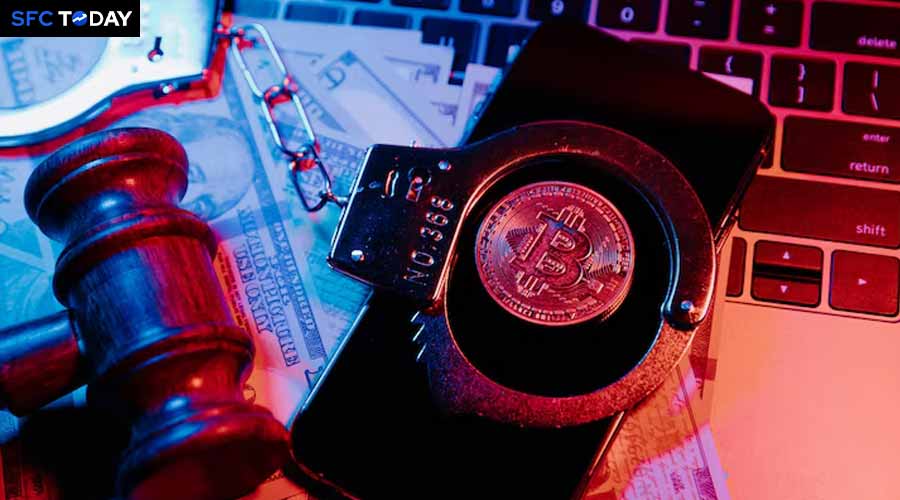Indian authorities uncovers US$145 million crypto extortion scandal
In recent years, the cryptocurrency market has experienced rapid growth, bringing both innovation and challenges to the financial world. While digital currencies like Bitcoin offer numerous benefits, they have also become a target for criminal activities. One of the most significant cases of crypto crime in India involves a staggering US$145 million crypto extortion scheme. This article delves into the details of India’s US$145 million crypto extortion case, the key players involved, and the broader implications for the cryptocurrency market.
The Case Unfolds
The US$145 million crypto extortion case came to light when Indian authorities, specifically the Enforcement Directorate (ED), began investigating a series of fraudulent activities linked to the cryptocurrency market. The primary suspect, Shailesh Bhatt, was accused of extorting and defrauding individuals through a Ponzi scheme known as Bitconnect Coin between 2017 and 2018.
Bhatt allegedly extorted 2,091 Bitcoins, 11,000 Litecoins, and approximately US$1.72 million in cash from various victims. The total value of the extorted assets was estimated to be around US$145 million at the time of the investigation.
The Modus Operandi
The scheme operated under the guise of Bitconnect, a cryptocurrency investment platform that promised high returns on investments. Bitconnect lured investors with the promise of daily interest payments and the potential for significant profits through its lending program. However, the platform was later exposed as a Ponzi scheme, where returns to earlier investors were paid using the capital of new investors.
Bhatt, leveraging the Bitconnect platform, convinced numerous individuals to invest their money in the scheme. When the platform collapsed, he resorted to extortion, using threats and coercion to extract additional funds from his victims. Bhatt’s operation exploited the lack of regulatory oversight in the cryptocurrency market, allowing him to carry out his activities with minimal scrutiny.
The Investigation
The investigation into the US$145 million crypto extortion case was a complex and multifaceted process. The ED, along with other law enforcement agencies, tracked down Bhatt and his associates through a combination of digital forensics, financial analysis, and traditional investigative techniques.
Authorities discovered that Bhatt had used sophisticated methods to launder the extorted funds, including converting cryptocurrencies into cash and transferring them through multiple accounts to obscure their origins. The investigation also revealed that Bhatt had connections with other criminal networks involved in similar fraudulent activities.
The ED’s investigation was further complicated by the anonymity and decentralization of cryptocurrency transactions. However, through persistent efforts, the authorities were able to trace the flow of funds and gather sufficient evidence to arrest Bhatt.
Legal Proceedings
In August 2024, Shailesh Bhatt was arrested by the ED under the Prevention of Money Laundering Act (PMLA), 2002. The arrest marked a significant milestone in the case, as it highlighted the Indian authorities’ commitment to cracking down on crypto-related crimes.
The legal proceedings against Bhatt and his associates are ongoing, with the authorities working to recover the extorted assets and bring the perpetrators to justice. The case has also prompted a broader discussion about the need for stricter regulations and oversight in the cryptocurrency market to prevent similar incidents in the future.
Implications for the Cryptocurrency Market
The US$145 million crypto extortion case has far-reaching implications for the cryptocurrency market in India and beyond. It underscores the vulnerabilities and risks associated with digital currencies, particularly in the absence of robust regulatory frameworks.
1. Regulatory Scrutiny
The case has intensified calls for stricter regulations and oversight of the cryptocurrency market. Regulators are now more focused on implementing measures to prevent fraud, money laundering, and other illicit activities involving digital currencies. The lack of clear regulations in the past allowed criminals like Bhatt to exploit the system, but this case has served as a wake-up call for regulators to take action.
2. Investor Awareness
The incident has highlighted the importance of investor education and awareness. Potential investors need to be cautious and conduct thorough research before investing in any cryptocurrency platform. Understanding the risks and recognizing the signs of fraudulent schemes can help protect individuals from falling victim to such scams. The Bitconnect Ponzi scheme was successful because it preyed on the greed and lack of knowledge of its investors.
3. Technological Advancements
The case has also spurred advancements in blockchain technology and digital forensics. Law enforcement agencies are increasingly leveraging these technologies to track and investigate crypto-related crimes. Improved tools and techniques for tracing cryptocurrency transactions can enhance the ability to detect and prevent fraudulent activities. This technological evolution is essential for keeping pace with the rapidly changing landscape of digital currencies.
4. Market Confidence
While the case has exposed the darker side of the cryptocurrency market, it has also led to efforts to restore confidence among investors. Regulatory measures, coupled with increased transparency and security protocols, can help rebuild trust in digital currencies and promote their legitimate use. The crackdown on Bhatt and the recovery of some of the extorted assets show that the system is capable of responding to such challenges.
The US$145 million crypto extortion case in India serves as a stark reminder of the potential risks and challenges associated with the cryptocurrency market. It highlights the need for robust regulatory frameworks, investor education, and technological advancements to combat crypto-related crimes. As the legal proceedings against Shailesh Bhatt and his associates continue, the case will likely shape the future of cryptocurrency regulation and enforcement in India and beyond.
The rise of digital currencies has brought about significant changes in the financial landscape, offering new opportunities and innovations. However, this case underscores the importance of vigilance, regulation, and the continuous evolution of technological tools to ensure that these opportunities are not overshadowed by criminal activities. The lessons learned from this case will be crucial in guiding the future development of the cryptocurrency market and ensuring its security and stability.







